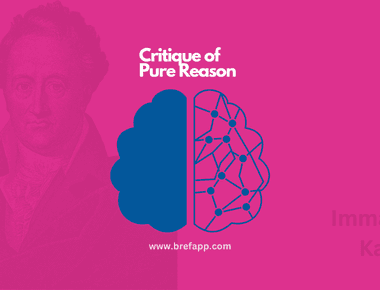
Exploring Existentialism: Embracing Freedom, Meaning, and Authenticity in the Modern World

Existentialism is a philosophical and literary movement that emerged in the 19th and 20th centuries. It revolves around the exploration of human existence, individuality, and the meaning of life. At its core, existentialism emphasizes the subjective experience of individuals, their freedom of choice, and the responsibility they bear for creating their own meaning and purpose in an often chaotic and absurd world.
A. Definition and Overview of Existentialism
Existentialism can be defined as a philosophical perspective that focuses on the individual’s existence as the starting point for understanding human life. Unlike many other philosophical traditions, existentialism places primary importance on subjective experience and personal responsibility. It rejects the idea that there is a predetermined essence or nature to human beings, asserting instead that individuals define themselves through their choices and actions.
B. Explanation of Key Concepts and Themes
- Existence precedes essence: Existentialism challenges the notion that individuals have a predetermined essence or nature. According to existentialist thought, human beings exist first and then define themselves through their actions and choices. This idea emphasizes the individual’s freedom and responsibility to shape their own lives.
- Authenticity and inauthenticity: Authenticity is a central concept in existentialism. It refers to the idea of living in accordance with one’s true self, values, and beliefs. Existentialists argue that individuals often fall into inauthenticity, conforming to societal expectations and norms instead of embracing their own unique essence. Authenticity involves self-reflection, honesty, and a willingness to confront the challenges and uncertainties of existence.
- Anguish and the absurd: Existentialism acknowledges the inherent anxiety, anguish, and existential dread that individuals may experience when confronted with the fundamental questions of life’s meaning and purpose. It recognizes that life can be unpredictable, chaotic, and devoid of inherent meaning. The concept of the absurd highlights the apparent contradiction between the human need for meaning and the inherent meaninglessness of the world.
- Freedom and responsibility: Existentialism places great emphasis on individual freedom and the responsibility that comes with it. Existentialists argue that human beings are condemned to be free, meaning that they must make choices and face the consequences of those choices. This freedom can be both liberating and burdensome, as individuals bear the weight of their decisions and the impact they have on their own lives and the lives of others.
- Existential anxiety and dread: Existentialism acknowledges that individuals may grapple with anxiety and dread when faced with the awareness of their own mortality, the uncertainty of the future, and the vastness and indifference of the universe. Existentialists encourage individuals to confront these anxieties, embrace the uncertainties of existence, and find meaning and purpose through their own actions and engagement with the world.
Historical Background
A. Origins of Existentialism
Existentialism traces its origins to the 19th and 20th centuries, emerging as a response to the philosophical and cultural shifts of the time. It arose in the aftermath of the Enlightenment, which emphasized reason, science, and the belief in universal truths. Existentialism, in contrast, sought to reclaim the significance of the individual and subjective experience.
B. Influential Philosophers and Thinkers
- Søren Kierkegaard: Often considered the father of existentialism, Kierkegaard (1813-1855) explored the themes of subjective existence, faith, and individual choice. He emphasized the importance of personal decision-making and the subjective experience of truth, challenging traditional religious and philosophical frameworks.
- Friedrich Nietzsche: Nietzsche (1844-1900) was a profound critic of traditional morality, religion, and the concept of absolute truth. He proposed a philosophy centered on the affirmation of life’s complexities and the rejection of societal norms that hinder personal growth and authenticity. Nietzsche’s writings heavily influenced later existentialist thinkers.
- Martin Heidegger: Heidegger (1889-1976) expanded existentialist thought through his exploration of ontology, the study of being. He emphasized the concept of “being-in-the-world” and the idea that individuals exist in a dynamic relationship with their environment. Heidegger’s work deeply influenced existential phenomenology and existentialist philosophers such as Jean-Paul Sartre.
- Jean-Paul Sartre: Sartre (1905-1980) is one of the most well-known existentialist philosophers. His philosophy centered on human freedom, responsibility, and the concept of “existence precedes essence.” Sartre argued that individuals are condemned to be free and that they must take responsibility for their choices, defining their own essence through their actions.
- Albert Camus: Camus (1913-1960) was a philosopher and writer who explored existentialist themes through his works, particularly in his philosophy of the absurd. He examined the tension between the human search for meaning and the inherent meaninglessness of the world. Camus emphasized the importance of embracing life’s absurdity and finding personal meaning and revolt against meaninglessness.
These influential thinkers laid the foundation for existentialist thought, each contributing unique perspectives on the human condition, individuality, and the search for meaning. Their ideas continue to shape existentialist philosophy and have had a profound impact on literature, art, and various other fields of study. In the following sections, we will delve deeper into the core concepts and ideas of existentialism as developed by these philosophers and thinkers.
Core Concepts of Existentialism
A. Existence precedes essence
Existentialism challenges the notion that individuals possess a predetermined essence or nature. Instead, it argues that existence precedes essence, meaning that individuals first exist and then define themselves through their choices and actions. This concept emphasizes the primacy of human freedom and the responsibility individuals have in shaping their own lives and creating their own meanings.
B. Authenticity and inauthenticity
Authenticity is a fundamental concept in existentialism. It refers to the state of living in alignment with one’s true self, values, and beliefs. Existentialists argue that individuals often fall into inauthenticity by conforming to societal expectations and norms, neglecting their own unique essence. Authenticity requires self-reflection, honesty, and the courage to confront the challenges and uncertainties of existence.
C. Anguish and the absurd
Existentialism recognizes the inherent anguish and existential dread individuals may experience when grappling with life’s fundamental questions. It acknowledges that life can be unpredictable, chaotic, and lacking in inherent meaning. The concept of the absurd highlights the apparent contradiction between the human need for meaning and the inherent meaninglessness of the world. Existentialists encourage individuals to confront this absurdity and find their own meaning and purpose in spite of it.
D. Freedom and responsibility
Freedom and responsibility are central to existentialist thought. Existentialism asserts that human beings are condemned to be free, meaning that they must make choices and bear the consequences of those choices. This freedom can be both liberating and burdensome, as individuals must take responsibility for their actions and the impact they have on their lives and the lives of others. Existentialism emphasizes the importance of using freedom wisely and ethically.
E. Existential anxiety and dread
Existentialism acknowledges that individuals may experience existential anxiety and dread when confronted with the awareness of their mortality, the uncertainty of the future, and the vastness and indifference of the universe. Existential anxiety arises from the tension between the human desire for stability, meaning, and security, and the existential reality of life’s uncertainties and limitations. Existentialists encourage individuals to embrace these anxieties, confront them directly, and find meaning through their actions and engagement with the world.
These core concepts form the foundation of existentialist philosophy, providing insights into the human condition, the quest for meaning, and the individual’s role in shaping their own existence. In the following sections, we will explore the existentialist view on human nature, the concept of existential crisis, and the application of existentialism in daily life.
Existentialist View on Human Nature
A. Rejection of Essentialism and Fixed Nature
Existentialism firmly rejects the notion of essentialism, which suggests that individuals have a fixed, predetermined nature or essence. Existentialists argue that human beings are not bound by any predetermined characteristics or inherent meaning. Instead, they emphasize that individuals have the freedom to define themselves through their choices and actions.
B. Emphasis on Individuality and Subjectivity
Existentialism places significant emphasis on individuality and subjectivity. Existentialists believe that each person has a unique perspective on the world and experiences life in their own subjective way. They assert that individuals are responsible for creating their own meanings, values, and identities, as these are not imposed by external forces or objective truths.
C. The Concept of “Thrownness”
Existentialism introduces the concept of “thrownness,” which refers to the idea that individuals are thrown into existence without their consent or choice. They find themselves in a specific time, place, and cultural context, shaping their experiences and opportunities. Existentialists highlight the significance of acknowledging and understanding one’s thrownness, as it provides a starting point for individuals to explore their authentic existence.
D. The Struggle for Meaning and Purpose
Existentialism acknowledges the inherent struggle individuals face in finding meaning and purpose in life. Existentialists recognize that existence can be challenging, and individuals often grapple with existential questions about the significance of their actions and the purpose of their existence. They argue that it is the individual’s responsibility to actively engage in the search for meaning, to create purpose through personal choices, and to live authentically in light of this ongoing struggle.
By rejecting essentialism, embracing individuality and subjectivity, considering the concept of thrownness, and recognizing the struggle for meaning and purpose, existentialism offers a distinctive perspective on human nature. It invites individuals to take an active role in shaping their own identities, values, and lives, encouraging them to find meaning and authenticity in a world that can often appear uncertain and absurd.
Existentialism and Existential Crisis
A. Understanding Existential Crisis
An existential crisis refers to a period of intense questioning and reflection on the fundamental aspects of one’s existence. It often arises when individuals confront the realities of life, such as their mortality, the uncertainty of the future, or a deep sense of meaninglessness. Existential crises can be triggered by significant life events, personal challenges, or philosophical contemplation.
B. Existentialist Perspectives on Finding Meaning During Crisis
Existentialism offers valuable perspectives on finding meaning during an existential crisis. Existentialists argue that crises can serve as opportunities for self-discovery, personal growth, and the reevaluation of one’s values and beliefs. They emphasize the importance of embracing the freedom and responsibility to create meaning in the face of adversity.
Existentialists encourage individuals to reflect deeply on their authentic selves, values, and desires during a crisis. They suggest that individuals should examine their choices, question societal expectations, and align their actions with their true selves. By embracing personal freedom and responsibility, individuals can find meaning by actively engaging in the world and creating their own purpose.
C. Existentialist Approaches to Coping with Existential Angst
Existentialism provides various approaches to coping with existential angst during a crisis:
- Embracing Existential Anxiety: Existentialists encourage individuals to face existential anxieties directly rather than avoiding or denying them. By acknowledging the uncertainties and anxieties of existence, individuals can better understand themselves and their place in the world, leading to personal growth and resilience.
- Engaging in Authenticity: Existentialists emphasize the importance of living authentically during a crisis. This involves self-reflection, embracing one’s true values and desires, and making choices in alignment with one’s authentic self. By living authentically, individuals can find a sense of purpose and meaning that resonates with their unique identity.
- Creating Meaningful Connections: Existentialism emphasizes the significance of human relationships and connections. During an existential crisis, reaching out to others, seeking support, and engaging in meaningful conversations can provide solace and a sense of shared understanding. Meaningful connections can also offer different perspectives and insights, aiding individuals in their search for meaning.
- Engaging in Creative Expression: Many existentialists believe that engaging in creative pursuits, such as art, writing, or music, can help individuals cope with existential angst. Creative expression allows individuals to explore their inner world, convey their thoughts and emotions, and find a sense of fulfillment and meaning through their creative endeavors.
By embracing these existentialist approaches, individuals can navigate their way through an existential crisis, finding meaning, authenticity, and personal growth along the journey. Existentialism provides valuable tools for individuals to confront their existential questions, discover their unique purpose, and transform crisis into an opportunity for self-discovery and self-actualization.
Existentialism in Literature, Art, and Popular Culture
A. Existentialist Themes in Literature
Existentialism has had a profound influence on literature, with many works exploring existentialist themes and ideas. Authors such as Fyodor Dostoevsky, Franz Kafka, and Jean-Paul Sartre have delved into the complexities of human existence, the search for meaning, and the existential crises individuals face. Existentialist literature often portrays characters grappling with questions of identity, freedom, responsibility, and the absurdity of life.
B. Existentialism in Film and Television
Existentialist ideas have also found expression in film and television. Filmmakers and screenwriters have drawn inspiration from existentialist concepts to create thought-provoking narratives and explore the human condition. Movies like Ingmar Bergman’s “The Seventh Seal” and Michelangelo Antonioni’s “L’Avventura” tackle existential themes such as the meaning of life, isolation, and the search for identity. Television series like “The Sopranos” and “BoJack Horseman” delve into existential crises, moral dilemmas, and the complexities of human existence.
C. Impact of Existentialism on Art and Philosophy
Existentialism has had a significant impact on various art forms and philosophical discourses. In art, existentialist ideas have influenced the creation of thought-provoking and emotionally charged works. Artists like Edvard Munch and Salvador Dalí have explored themes of anxiety, alienation, and the absurdity of existence in their paintings. In philosophy, existentialism has contributed to the development of existential phenomenology, a philosophical approach that seeks to understand human existence through subjective experience and lived reality. The works of Martin Heidegger, Jean-Paul Sartre, and Maurice Merleau-Ponty have shaped philosophical discussions on the nature of being and the meaning of existence.
Existentialist ideas have permeated popular culture, providing a lens through which individuals can explore the complexities of human existence. These artistic and cultural expressions not only reflect existentialist thought but also contribute to its ongoing development and influence. By engaging with existentialism through literature, film, art, and philosophy, individuals can further their understanding of the human condition and contemplate the existential questions that shape their lives.
Criticisms and Debates
A. Critiques of Existentialism
Existentialism, like any philosophical framework, has faced criticism and debate. Some common critiques include:
- Nihilism and Absurdity: Critics argue that existentialism can lead to a sense of nihilism or the belief that life is ultimately meaningless. They contend that existentialism’s emphasis on the absurdity of existence and the lack of inherent meaning can be disheartening and pessimistic.
- Individualism and Alienation: Existentialism’s focus on individual freedom and responsibility has been criticized for neglecting the social and communal aspects of human existence. Critics argue that existentialism can potentially lead to isolation and alienation from broader social contexts and ethical considerations.
- Lack of Ethical Framework: Some critics argue that existentialism fails to provide a comprehensive ethical framework. They contend that the emphasis on individual freedom may lead to moral relativism or the absence of objective moral standards.
B. Alternative Philosophical Viewpoints
Existentialism is not the only philosophical perspective on the nature of existence and human experience. Several alternative viewpoints have emerged, including:
- Analytic Philosophy: Analytic philosophy emphasizes logical analysis and the use of language to clarify concepts. It often focuses on specific problems and seeks precise definitions and logical solutions.
- Poststructuralism: Poststructuralism challenges the notion of fixed identities and stable meanings. It explores the ways language, power structures, and social contexts shape our understanding of reality.
- Pragmatism: Pragmatism emphasizes practical consequences and the importance of actions. It focuses on the practical value and usefulness of beliefs and ideas in guiding human behavior.
C. Existentialism’s Relevance in the Modern World
Existentialism continues to be a subject of debate and remains relevant in the modern world for several reasons:
- Personal Freedom and Authenticity: Existentialism’s emphasis on personal freedom, responsibility, and authenticity resonates with individuals seeking to live meaningful lives and make conscious choices in a complex and rapidly changing world.
- Search for Meaning and Purpose: Existentialism addresses fundamental existential questions about the meaning and purpose of life, which continue to be relevant concerns for many individuals navigating their personal and professional lives.
- Existential Challenges of the Modern Era: The modern era presents unique challenges such as technological advancements, globalization, and the erosion of traditional values. Existentialism offers a philosophical framework to grapple with these challenges and understand their impact on human existence.
- Psychological and Therapeutic Applications: Existentialist ideas have been incorporated into various psychological and therapeutic approaches, such as existential therapy and logotherapy. These approaches help individuals explore their values, confront existential anxieties, and find meaning in life.
While existentialism has faced criticism and alternative viewpoints exist, its focus on human freedom, individuality, and the quest for meaning continues to contribute to philosophical discussions and resonate with individuals seeking to understand and navigate the complexities of human existence.
Applying Existentialism in Daily Life
A. Embracing Personal Freedom and Responsibility
One of the key aspects of existentialism is the recognition of personal freedom and the accompanying responsibility for one’s choices. Applying existentialism in daily life involves actively embracing and exercising this freedom while being accountable for the consequences. It requires acknowledging that every decision and action has the potential to shape one’s existence and impact the lives of others. By embracing personal freedom and responsibility, individuals can take an active role in shaping their lives according to their own values and aspirations.
B. Cultivating Authenticity and Self-Awareness
Existentialism encourages individuals to cultivate authenticity by being true to themselves and living in alignment with their values and beliefs. To apply existentialism in daily life, it is essential to engage in self-reflection and develop a deep sense of self-awareness. This involves examining one’s motives, desires, and aspirations, and critically evaluating whether they align with one’s authentic self. By staying true to one’s own essence and making choices that reflect personal authenticity, individuals can lead more meaningful and fulfilling lives.
C. Navigating Existential Questions in the Modern World
Existentialism provides a framework for grappling with existential questions that arise in the modern world. To apply existentialism in daily life, individuals can:
- Engage in Meaningful Pursuits: Actively seek out activities, hobbies, or causes that bring a sense of purpose and meaning to life. This could involve pursuing creative endeavors, engaging in social activism, or finding ways to contribute to the well-being of others.
- Embrace Uncertainty and Embrace Change: Recognize that life is inherently uncertain and ever-changing. Instead of resisting or fearing uncertainty, embrace it as an opportunity for growth and transformation. Cultivate resilience and adaptability in the face of life’s challenges and uncertainties.
- Seek Authentic Connections: Foster genuine and meaningful relationships with others. Surround oneself with individuals who support personal growth and encourage authenticity. Engage in open and honest conversations that explore existential questions and share perspectives on the human experience.
- Practice Mindfulness and Reflection: Incorporate mindfulness practices into daily life to develop a deeper awareness of the present moment. Set aside time for self-reflection and introspection to explore existential questions and gain insights into personal values, beliefs, and aspirations.
By embracing personal freedom, cultivating authenticity, and navigating existential questions, individuals can apply existentialism in their daily lives. This approach enables them to lead more intentional, purposeful, and authentic lives, finding meaning and fulfillment in the midst of the complexities and uncertainties of the modern world.
Conclusion
A. Recap of Key Points
In this article, we have explored the multifaceted philosophy of existentialism. We began by providing a definition and overview of existentialism, highlighting its key concepts and themes. We discussed the historical background of existentialism, including its origins and influential philosophers like Kierkegaard, Nietzsche, Heidegger, Sartre, and Camus. We then delved into the core concepts of existentialism, such as the primacy of existence, authenticity, anguish, freedom, and existential anxiety. We examined existentialist views on human nature, emphasizing the rejection of essentialism, the emphasis on individuality and subjectivity, the concept of “thrownness,” and the struggle for meaning and purpose. We further explored existentialism’s relevance in the context of existential crises, its perspectives on finding meaning, and its approaches to coping with existential angst. We also examined the presence of existentialism in literature, art, and popular culture and discussed criticisms, alternative viewpoints, and existentialism’s enduring relevance in the modern world.
B. The Enduring Influence of Existentialism
Existentialism has left an indelible mark on philosophy, literature, art, and popular culture. Its emphasis on personal freedom, authenticity, and the search for meaning continues to resonate with individuals seeking to navigate the complexities of existence. Existentialist ideas have influenced various fields, including psychology, therapy, and social sciences, shaping our understanding of the human condition and offering valuable insights into the lived experience.
C. Final Thoughts and Reflections
Existentialism invites us to confront the fundamental questions of existence, encouraging us to take responsibility for our choices, embrace our individuality, and actively engage in the search for meaning and purpose. While existentialism has faced criticism and alternative viewpoints exist, its enduring influence reminds us of the importance of self-reflection, authenticity, and the pursuit of a meaningful life.
In our daily lives, we can apply existentialism by embracing personal freedom and responsibility, cultivating authenticity and self-awareness, and navigating existential questions in the modern world. By doing so, we can lead more intentional and fulfilling lives, finding our own paths amidst the uncertainties and complexities of existence.
In conclusion, existentialism offers us a philosophical lens through which we can explore the depths of human existence, empowering us to shape our own identities, values, and lives. It is a reminder that amidst the mysteries and challenges of life, we possess the freedom and responsibility to create meaning, find authenticity, and embark on a journey of self-discovery and self-actualization.
Tags
Related Posts





Quick Links
Categories

